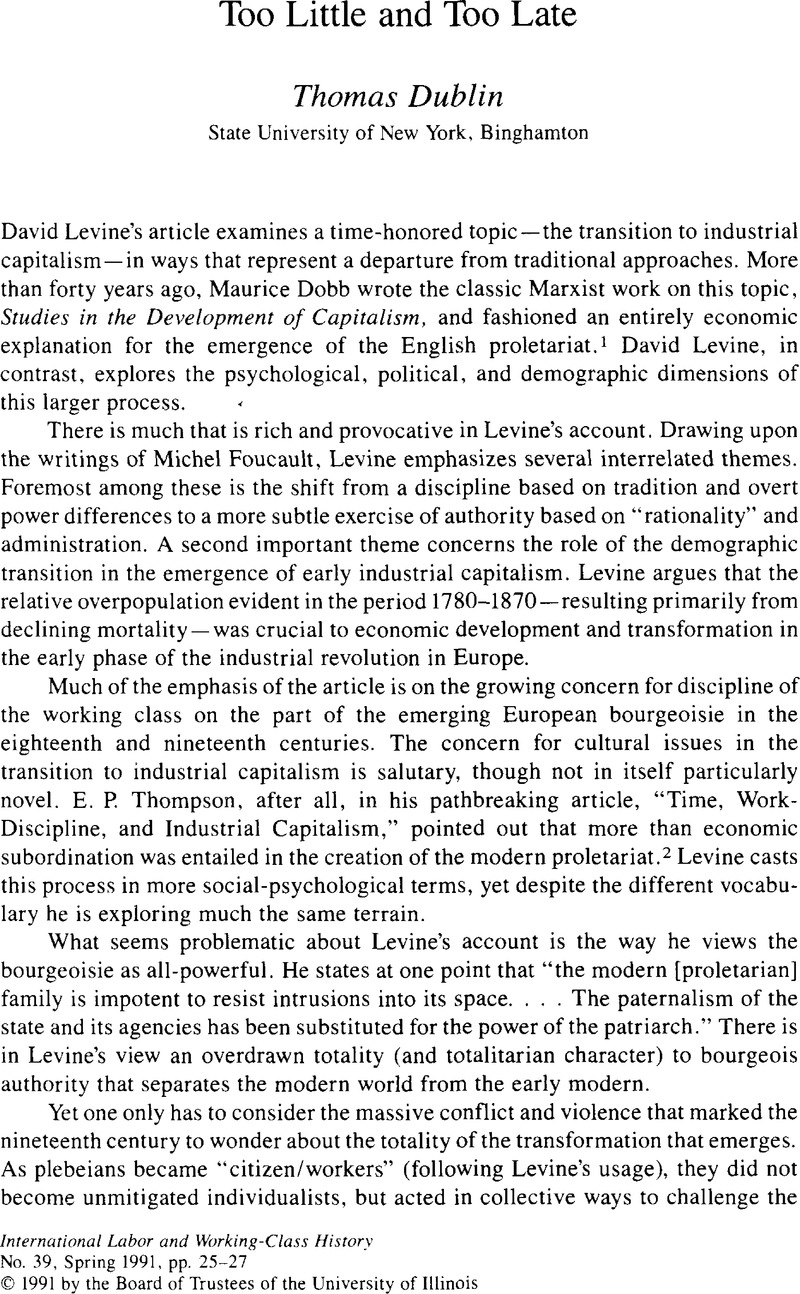No CrossRef data available.
Article contents
Too Little and Too Late
Published online by Cambridge University Press: 16 December 2008
Abstract

- Type
- Responses
- Information
- Copyright
- Copyright © International Labor and Working-Class History, Inc. 1991
References
NOTES
1. Dobb, Maurice, Studies in the Development of Capitalism (New York, 1963; first ed., 1946)Google Scholar.
2. Past & Present 38 (1967): 56–97CrossRefGoogle Scholar.
3. Thompson, Dorothy, The Chartists: Popular Politics in the Industrial Revolution (New York, 1984)Google Scholar.
4. I have discussed these issues in “Women and Outwork in a Nineteenth-Century New England Town: Fitzwilliam, New Hampshire, 1830–1850,” in The Countryside in the Age of Capitalist Transformation: Essays in the Social History of Rural America, eds. Hahn, Steven and Prude, Jonathan (Chapel Hill, 1985)Google Scholar, and in Women at Work: The Transformation of Work and Community in Lowell, Massachusetts, 1826–1860 (New York, 1979), esp. chap. 3Google Scholar.
5. See especially the correspondence of Frederick Avery, outwork middleman, and Stephen Tripp, agent of the Blackstone (Mass.) Manufacturing Company, July 28, 1814, Oct. 16, 1815, and Nov. 22, 1815. Blackstone Company records, Series F, Box 2, folder 9, Rhode Island Historical Society, Providence, R.I.
6. Dublin, , Women at Work, chap. 7Google Scholar.
7. Sartre, Jean-Paul, quoted in Gutman, Herbert G., Power and Culture: Essays on the American Working Class (New York, 1987), 326Google Scholar.


